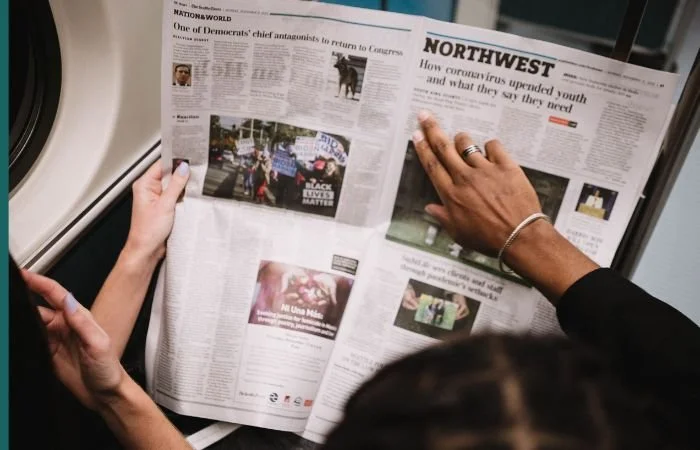Finding the blind spot in corporate perception
If you were to Google ‘market research’, you would be met with billions of results. Definitions, recommendations, how-to guides, and article upon article about why market research is important. The global revenue of the market research industry exceeded 73.4 billion US dollars in 2019, growing more than twofold since 2008, so it’s fair to say that it is, in fact, quite important.
After all, how else is your businesses supposed to know what its consumers want?
Rory Sutherland, Vice Chairman of Ogilvy, discusses how business success relies on more than bog-standard market research.
Quite often in the corporate world, organisations will turn to market research to better understand their customers. Uncovering why they would use their products or services, how their product solves a challenge in their customer’s lives, what makes them stand out over a competitor, what influences their purchase decisions, and more. But while market research is better than no research at all, it’s doesn’t paint a full picture.
I’m not knocking the value of market research – it can tell you some very valuable things that without it, you wouldn’t have known. But it can’t tell you everything. There’s a big difference between what consumers want and care about, and what businesses THINK consumers want and care about. And that’s where behavioural science comes into play.
This is a topic I’m very passionate about, and I recently spoke about it at the 3rd Horizon Event Series, hosted by the Executive Development Network (EDN).
Behavioural science, or behavioural economics, is all about how we think, decide, and most importantly, how we act in the real world. And this is what businesses really ought to know, because this is where you will find what I call “unseen opportunities”.
Economics is often the key driver of business decisions. It is the dominant voice in the boardroom, so much so, that most organisations tend to regard the psychological side of marketing as rather trivial. However, economic theory and mathematical models are not a guide to human behaviour. The assumption that decision making is driven by logic alone is a poor one, because humans aren’t logical; how we behave isn’t always rational and it doesn’t always make sense. Facts take a back seat to our emotional responses.
With this in mind, one of the best things you can do as a marketer is not to change the consumer’s perspective but change your own. Businesses tend to get trapped in one of two perspectives: what market research tells us, and what seems logical in economic terms. For example, ‘if we drop the price of this product, we’ll sell more of this product.’ But this is merely an assumption and doesn’t necessarily translate into the real world.
So, marketing shouldn’t be targeting our rational behaviour. Instead, marketers should be targeting the unconscious biases and habits that we all have.
Take the launch of the iPhone. Nothing about the original iPhone was particularly exciting – at least not to me anyway. But Steve Jobs took a different perspective. He didn’t ask the question, “what can this phone do?”, he asked, “what does it feel like?” And so, when people bought their first iPhone, people didn’t really care about the camera quality or the memory, they cared about the small touches and details that made using it feel natural.
All innovation requires a leap of imagination in terms of what consumers really care about.
Nespresso is another good example. Before the brand existed, you wouldn’t have thought there was a huge market for people spending 65p to make a cup of coffee themselves at home. If you tried to sell Nespresso coffee in a jar, the equivalent amount would cost you around £40, which seems completely ridiculous when you think about it. But Nespresso comes in pods – a single cup of coffee – so the frame of reference changes from instant coffee to your favourite drink from Starbucks. You immediately feel like you’re saving money because you’re enjoying a 65p cup of coffee at home, rather than a £2.50 cup of coffee somewhere else. Nespresso changed the perspective, and is now worth billions of dollars.
Business leaders themselves can learn from this notion of changing perceptions and apply it to their own development. No one is ever finished learning, so managers should ensure they are constantly challenging themselves to think, work and lead in different ways in order to ensure they are achieving optimum results.
Businesses must seek to understand the emotions that drive our decisions, such as trust and confidence. By doing so it opens the door to those previously mentioned “unseen opportunities”. It challenges people to think differently, it allows people to tap into the emotional needs of the consumer, and it can ultimately lead to changes in perception that elevate your business.








